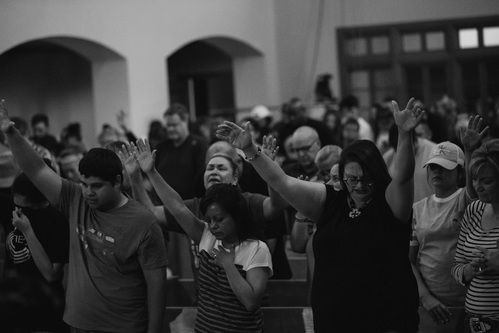Thursday Devo

Scripture Reading:
Psalm 16:5-11 (ESV)
5 The Lord is my chosen portion and my cup;
you hold my lot.
6 The lines have fallen for me in pleasant places;
indeed, I have a beautiful inheritance.
7 I bless the Lord who gives me counsel;
in the night also my heart instructs me.
8 I have set the Lord always before me;
because he is at my right hand, I shall not be shaken.
9 Therefore my heart is glad, and my whole being rejoices;
my flesh also dwells secure.
10 For you will not abandon my soul to Sheol,
or let your holy one see corruption.
11 You make known to me the path of life;
in your presence there is fullness of joy;
at your right hand are pleasures forevermore.
5 The Lord is my chosen portion and my cup;
you hold my lot.
6 The lines have fallen for me in pleasant places;
indeed, I have a beautiful inheritance.
7 I bless the Lord who gives me counsel;
in the night also my heart instructs me.
8 I have set the Lord always before me;
because he is at my right hand, I shall not be shaken.
9 Therefore my heart is glad, and my whole being rejoices;
my flesh also dwells secure.
10 For you will not abandon my soul to Sheol,
or let your holy one see corruption.
11 You make known to me the path of life;
in your presence there is fullness of joy;
at your right hand are pleasures forevermore.
Commentary from the ESV Study Bible:
16:5–6 Contentment with My Chosen Portion. The psalm now describes the psalmist’s satisfaction with the Lord and his provision. The terms portion, lot, lines, and inheritance evoke the allocation of the land into family plots (perhaps with an allusion to the Lord as the Levites’ portion and inheritance; Num. 18:20); the song promotes contentment with the arrangements of one’s life, seeing them as providentially ordered.
16:7–8 Delight in God’s Constant Presence. God’s presence, in which the psalmist delights, is seen in the moral instruction he receives (v. 7), and it results in his assurance of stability (v. 8). The psalmist’s heart instructs him during the night (v. 7), a result of deliberate reflection (cf. 1:2); likewise to set the Lord always before me expresses intention.
16:8 God’s mercies to David look forward to the climactic answer when Christ does not remain in the grave but is raised (Acts 2:25–33).
16:9–11 Hope of Everlasting Joy. As in 49:15 and 73:24–26, here there is a clear affirmation that the human yearning to be near to God and to know the pleasure of his welcome forever, beyond the death of the body, finds its answer in the covenant. Peter cites 16:8–11 in his Pentecost speech (Acts 2:25–28), applying the verses to the resurrection of Jesus; Paul used Ps. 16:10 in his similar speech (Acts 13:35). If the apostles meant that David’s words were a straight prediction of the death and resurrection of Jesus, it is difficult to know what function the psalm could have played in ancient Israel: the congregation would have scratched their heads in puzzlement every time they sang it. This puzzlement goes away if the psalm is seen as cultivating the hope of everlasting glory for the faithful, with the resurrection of Jesus (the holy one par excellence) as the first step in bringing this hope to fruition (cf. Rom. 8:23; 1 Cor. 15:23).
16:7–8 Delight in God’s Constant Presence. God’s presence, in which the psalmist delights, is seen in the moral instruction he receives (v. 7), and it results in his assurance of stability (v. 8). The psalmist’s heart instructs him during the night (v. 7), a result of deliberate reflection (cf. 1:2); likewise to set the Lord always before me expresses intention.
16:8 God’s mercies to David look forward to the climactic answer when Christ does not remain in the grave but is raised (Acts 2:25–33).
16:9–11 Hope of Everlasting Joy. As in 49:15 and 73:24–26, here there is a clear affirmation that the human yearning to be near to God and to know the pleasure of his welcome forever, beyond the death of the body, finds its answer in the covenant. Peter cites 16:8–11 in his Pentecost speech (Acts 2:25–28), applying the verses to the resurrection of Jesus; Paul used Ps. 16:10 in his similar speech (Acts 13:35). If the apostles meant that David’s words were a straight prediction of the death and resurrection of Jesus, it is difficult to know what function the psalm could have played in ancient Israel: the congregation would have scratched their heads in puzzlement every time they sang it. This puzzlement goes away if the psalm is seen as cultivating the hope of everlasting glory for the faithful, with the resurrection of Jesus (the holy one par excellence) as the first step in bringing this hope to fruition (cf. Rom. 8:23; 1 Cor. 15:23).
Study Questions:
- The second takeaway from the message on Sunday was that it is JESUS who interprets the Word of God. He is the one that tells us, lovingly, "Here is where you've missed the point." But we must listen to him and then act on it. A right HEART is the first step, and then it must produce the right INTERPRETATION and the right ACTION. Out of the overflow of your heart your mouth speaks. The bottom line is that God wants your heart. He looks past the outward show and looks straight to the core of who you are. Spend some time praying that God would search your heart and reveal anything in you that doesn't line up with his Word or if you are leaning on your own interpretation over his. Is he speaking anything to you? Write it down and ask God to help you deal with what you find.
- Because we tend to drift towards a religious spirit and interpretation of the Gospel, and because of the things some of us were taught growing up, we often miss the point. We default to the mistaken belief that God's ways are restrictive. Following Jesus means giving up all the fun things in life and having to start doing a lot of spiritual chores in their place. This couldn't be further from the truth! David is writing here that God's ways "revive the soul", and that in his presence is found "the fullness of joy." It's sad that so many "Christians" never really understand the joy and freedom that is found in following Jesus and the fulfillment and peace that mark the life that is fully submitted to him. Are you guilty of this line of thinking? Have you ever experienced the "fullness of joy" in your life? What do you think is missing? How do you live in his presence on a more consistent basis?
Pray:
- That you would seek to have a "right heart" and always submit to HIS interpretation of truth.
- That you would live in the joy, peace and freedom that truly living for Jesus offers.

No Comments